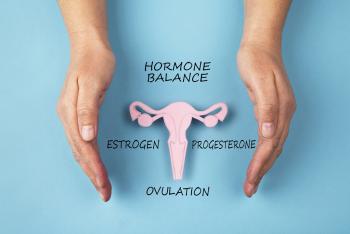Urinary tract infections (UTIs), bacterial infections of the bladder, are common health conditions...
Read More

Known as "The Big Change," menopause can be an uncertain and uncomfortable milestone. Yet despite popular belief, it's during perimenopause—the eight to 10 years before menopause—that people with ovaries may have difficulty falling asleep and controlling their moods due to producing less estrogen. Menopause is a natural part of life, and it should be treated as such. Here's what you should know about the changes prior to and during menopause.
The three stages of menopause are perimenopause, when ovaries stop releasing eggs; menopause, when a person has not had a menstrual period for 12 consecutive months; and postmenopause, the years following menopause.
"It is well-known that the lack of estrogen toward the end of perimenopause causes the characteristic hot flashes as well as physiological changes associated with menopause that typically begins in a person's 40s," said Sabrina H. Thomas, M.D., a board-certified obstetrician and gynecologist at Inspira Medical Group's new East Vineland office. "That is why knowing the symptoms of perimenopause is vital."

The distinguishing characteristics of menopause/perimenopause can include:
"Many know these symptoms. But what many don't know is that there are treatments available for the myriad of issues that these changes have on a person's mental, physical and emotional well-being," said Dr. Thomas. "Whether it's changing your diet, increasing your exercise regimen or picking up a new, healthy lifestyle habit, there are so many options out there that include but are not limited to hormone treatments to help you mitigate and manage your menopausal symptoms."
For hot flashes: While oral contraception or hormone replacement is an often-used method to control hot flashes, there are several other options; like reducing your alcohol intake, maintaining a healthy weight, having enough calcium in your diet, sticking to a regular sleep schedule and even non-hormonal medications.
For trouble sleeping: Unfortunately, hot flashes often affect a person's ability to sleep. If hormone replacement therapy (HRT)—which provides a low dose of estrogen—is not a good option for you, don't worry. After speaking with your health care provider, you may decide on antidepressants or other medications to aid your ability to sleep. Additionally, wearing loose clothing and sleeping in a temperature-controlled room may help.
For mood swings: Exercise, a healthy diet and plenty of shut-eye are the three ingredients for stabilizing your mood. But, if these at-home treatments aren't enough, it's important that you speak with your health care provider right away. Together, you can create a care plan that may include medication, therapy or additional treatments.
"Menopausal and perimenopausal symptoms are not easy. But you don't have to be hard on yourself," said Dr. Thomas. "Remember, whatever you're experiencing, whenever you're experiencing it, you don't have to go through it alone. The first step? Talk to your health care provider."
To schedule an in-person or virtual appointment with Dr. Thomas or another Inspira provider, call 1-888-312-4784.

Urinary tract infections (UTIs), bacterial infections of the bladder, are common health conditions...
Read More
Prioritizing cervical health is a lifelong commitment—from HPV vaccinations in adolescence to...
Read More
Midwives offer a compassionate, patient-centered approach. With an emphasis on consent and shared...
Read More
The material set forth in this site in no way seeks to diagnose or treat illness or to serve as a substitute for professional medical care. Please speak with your health care provider if you have a health concern or if you are considering adopting any exercise program or dietary guidelines. For permission to reprint any portion of this website or to be removed from a notification list, please contact us at (856) 537-6772